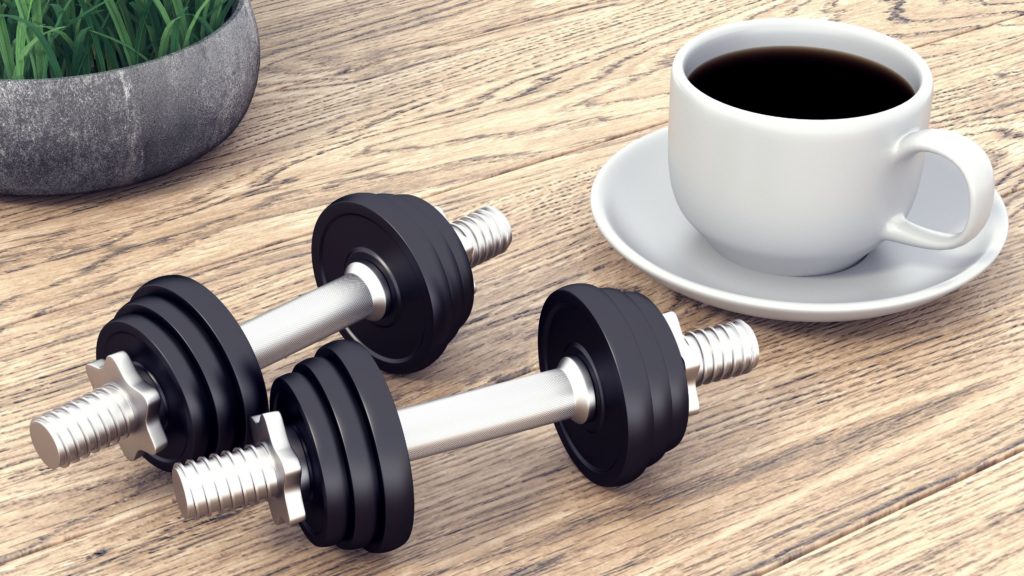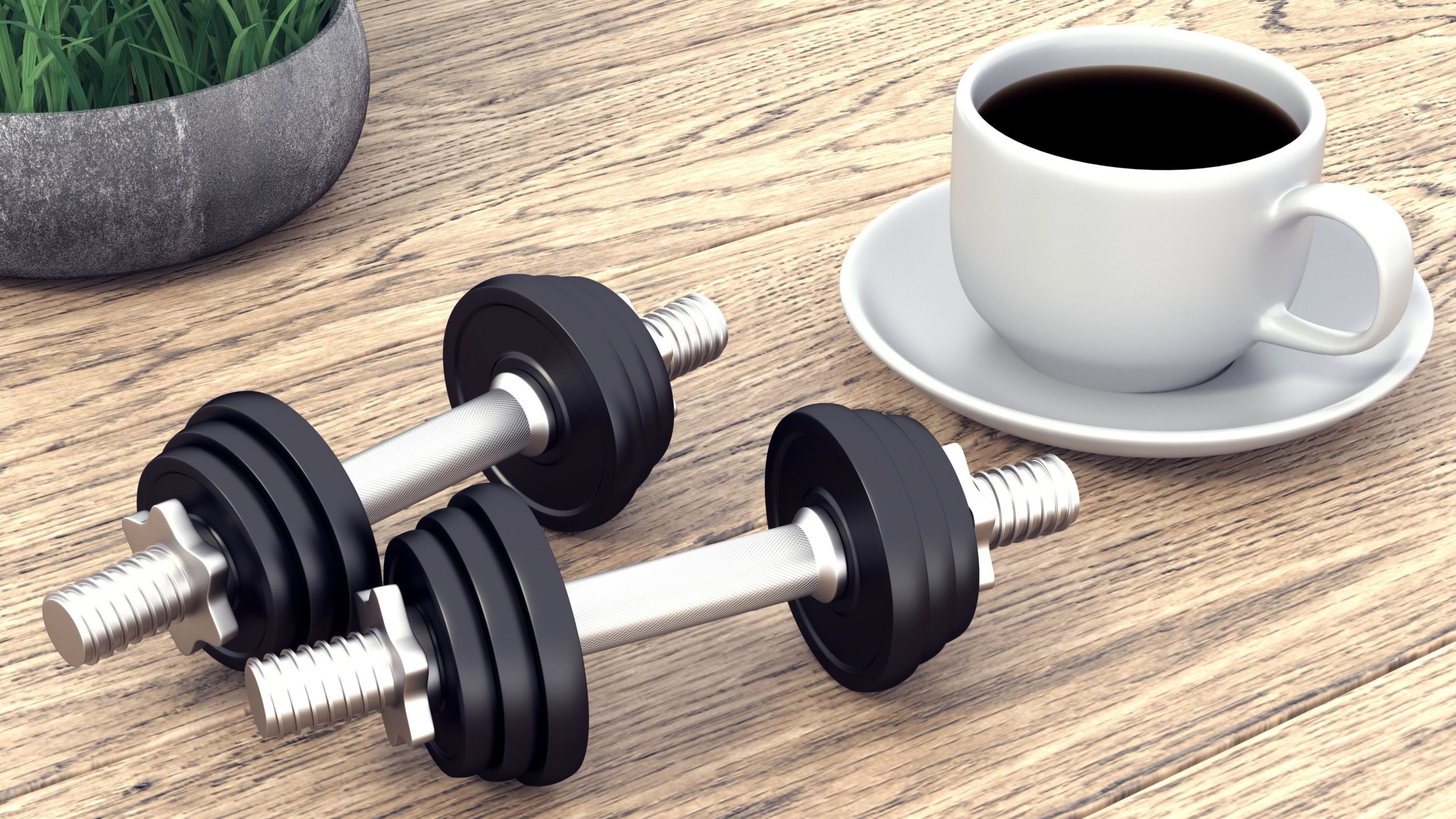Coffee, Caffeine & Sports Performance
Looking for an extra boost before a workout? A preworkout coffee may be one of the easiest ways to enhance your performance and provide you with some additional health benefits. Coffee is one of the most commonly consumed drinks worldwide. Naturally rich in caffeine, and antioxidants it is well known as an effective ergogenic aid or performance enhancer.

Caffeine and Performance
Caffeine is probably the most researched supplements shown to improve performance across a wide range of sports. The most common dietary source of caffeine is coffee, but it also present in tea, cola drinks, energy drinks, chocolate and sports supplements. The major benefits of caffeine on exercise performance appear to be due to its central nervous system effects. It exerts a direct stimulatory effect on the muscles while decreasing the perception of how hard you are working. Caffeine taken before and during exercise can reduce feelings of fatigue, improve alertness and focus and allow you to exercise for a longer period.
When it comes to sports performance caffeine has the following additional benefits
- increases muscular strength and power
- increases aerobic endurance
- improves skills like sprinting, jumping, and throwing performance
How much Caffeine?
Much research has looked at the dose response relationshipbetween caffeine intake and exercise performance. While higher doses (5-9 mg/kg body mass) do provide performance benefits they also increase the risk of side effects such as increases in heart rate, anxiety, sleep problems and digestive upsets. More recent research suggests that lower doses of ~3 mg/kg or ~200 mg still produce performance benefits with few, if any, side effects. The International Society of Sports Nutrition (ISSN) suggests a dose of between 3–6 mg/kg body mass for sports performance.
There is no one size fits all, however. Our response to caffeine is highly variable which is thought to be linked to how quickly our body metabolizes caffeine. If you are not used to taking caffeine, then it is worth starting with the lowest efficient dose of 1.5mg/ kg/ or ~100mg and gradually increasing as needed.
When & How Should I Take It?
Caffeine is rapidly absorbed with concentrations peaking between 30 and 120 minutes. While many people take caffeine 30-60 minutes before exercise you will probably notice the benefits sooner. In fact caffeine appears to be most beneficial during times where fatigue becomes more noticeable such as during endurance training or high intensity activities. This means for some people consuming caffeine during exercise (mid/later stages) may be more beneficial than ingestion beforehand. The optimal timing of caffeine ingestion can also depend on the source of caffeine. For example, caffeine via chewing gum absorbs more quickly making it useful for a quick pick me up.
There are many ways to consume caffeine in addition to coffee. It is available in capsule form, sports drinks, tablets, gels and bars. Most energy gels contain around 75g-100g per sachet.
Caffeine and Fat Loss
For your body composition, caffeine may help you burn more calories by raising body temperature, boosting metabolism and increasing fat oxidation, helping you utilize more fatty acids for fuel. One study found up to a 29% increase in fat oxidation in lean subjects and a 10% increase oxidation in obese women. While increasing fatty acid oxidation sounds great, it’s important to note that total daily calorie balance is still key.
Caffeine and Sleep
Caffeine can affect sleep onset and quality, even at low levels of intake. While the average half-life of caffeine is generally reported to be between 4 and 6 hours (i.e. about half of caffeine remains in your blood after this period), it varies between individuals and even may range from 1.5 to 10 h in adults. If you struggle with getting quality sleep consider limiting your caffeine intake to the morning only.
Should I Withdraw Using Caffeine Prior To Using It In A Race?
It used to be thought that withdrawing from caffeine prior to consuming it for a race or competition would further boost performance. However recent studies show there is no difference in the performance response to caffeine between non-users
and users of caffeine, and that withdrawing athletes from caffeine does not increase the net improvement in performance achieved with caffeine supplementation. That said if you are not used to taking caffeine it is important to test it out before a competition during your training sessions.
Caffeine Content In Drinks And Foods
The caffeine content in drinks such as tea, coffee and hot chocolate can be highly variable and will depend on the brand, brewing and size of drink.
| Drink | Size | Caffeine Content mg |
| Instant coffee | 250ml / 1 cup | 60 (12-169) |
| Brewed coffee | 250ml / 1 cup | 80 (40-110) |
| Expresso | Standard serve | 107 |
| Black Tea | 250ml / 1 cup | 25-110 |
| Green Tea | 250ml / 1 cup | 30-50 |
| Iced Tea | 600ml bottle | 20-40 |
| Frappaccino | 375 ml cup | 90 |
| Hot chocolate | 250ml / 1 cup | 5-10 |
| Energy drink | 500ml can | 160 |
Are there specific health benefits from drinking coffee?
There’s more to coffee than its caffeine content. One of the reasons coffee has unique health benefits is its extremely high antioxidant content including polyphenols such as chlorogenic acid.
Drinking coffee in moderation up to 3-4 cups appears to be protective against a number of chronic diseases. Multiple studies have shown that regular coffee consumption may reduce the risk of developing type 2 diabetes by over 50%. Other studies suggest lifelong regular consumption of coffee reduces the risk of developing Alzheimer’s disease, Parkinson’s disease and depression. While caffeine can increase blood pressure some research indicates that drinking coffee may be linked to a lower risk of heart disease and stroke. As with anything, you can have too much of a good thing so don’t go overboard. Even 1 or 2 cups per day have been shown to provide health benefits.

